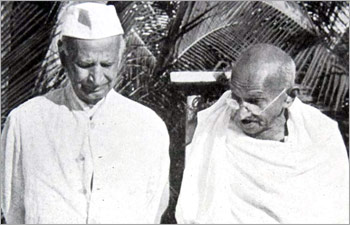Jalaluddin Firuz Khilji was the founder of the Khilji dynasty that
supplanted the Slave dynasty of the Delhi Sultanate. Amidst the intense rivalry
between Turkish and Afghan nobles, Jalaluddin, who represented the Afghan
nobility, seized the Delhi throne by murdering Kaiqubad, the last Sultan of
Slave dynasty and his infant son Kayumars. Aitamar Kachhan and Aitamar Surkha,
the leaders of the Turkish Nobility were also put to death. Thus came into
being the Khilji dynasty which ushered in a new era of cruel imperialism in
India in 1290.
Jalal-ud-din Firuz Khilji was seventy when he ascended the throne.
Citizens of Delhi did not like the change in the line of rulers. This compelled
him to make Kilokhri the seat of his government. With the passage of time he
succeeded in minimizing the discontent of his nobles by disbursement of land
and his generosity which was sometimes construed as being below the dignity of
a sovereign.
His was a case of split personality. Jalal-ud-din Firuz Khilji was
averse to the idea of military expeditions as it will cost the lives of his
co-religionists. When, in 1991 Malik Chhajju, a nephew of Balban and governor
of Kara, assisted by several nobles, unfurled the banner of revolt against him,
he was imprudent enough to show mercy on him by pardoning the rebels. On the
other hand, Siddi-Maula, a darvesh, was trampled by an elephant on his order.
As was only to be expected he could not subdue the Ranthambhor fort. He
however, was successful in inflicting a crushing defeat on the Mongols, who
under a grandson of Halaku (Hulagu) invaded the territory of Delhi Sultanate in
1292.
Jalaluddin Khilji was paid back in his own coin when he was murdered in
1296 by his ambitious nephew and son-in-law Alauddin Khilji when he went to
Kara to facilitate him for his victory in the South India which brought him
large amount of booty. As mentioned at the outset, Jalaluddin captured the
throne of Delhi Sultanate by murdering the last Slave ruler Kaiqubad, grandson
of Balban, and his infant son Kayumars.


